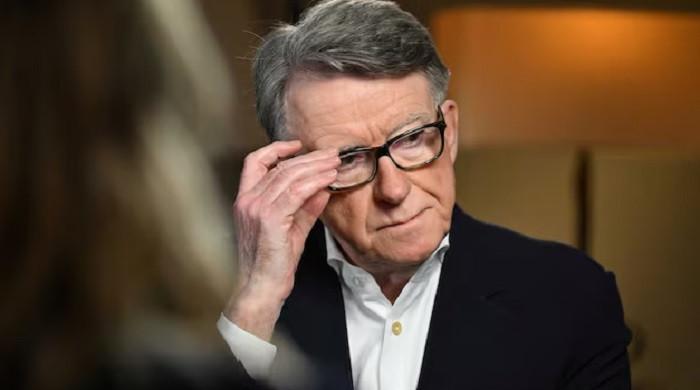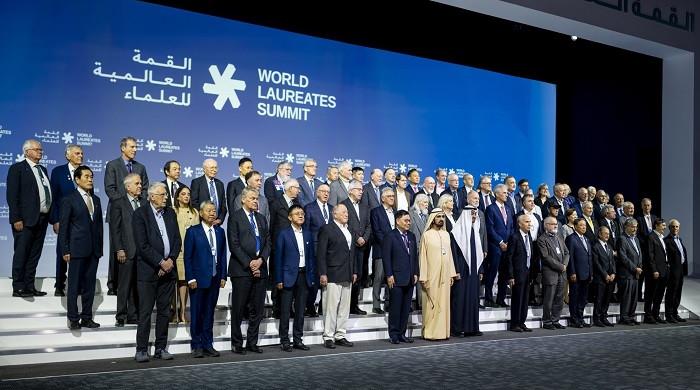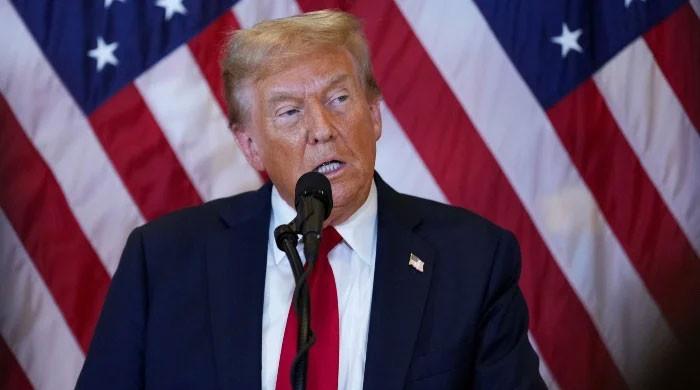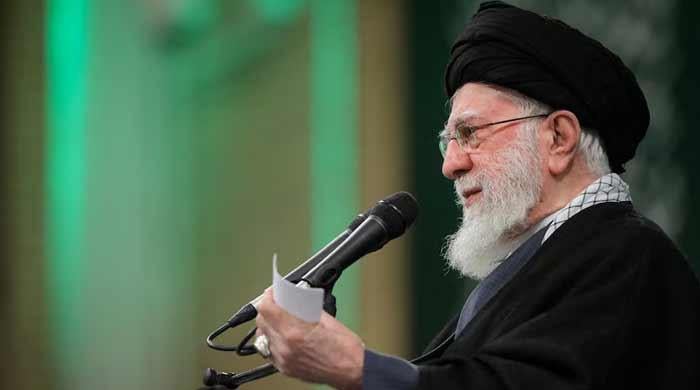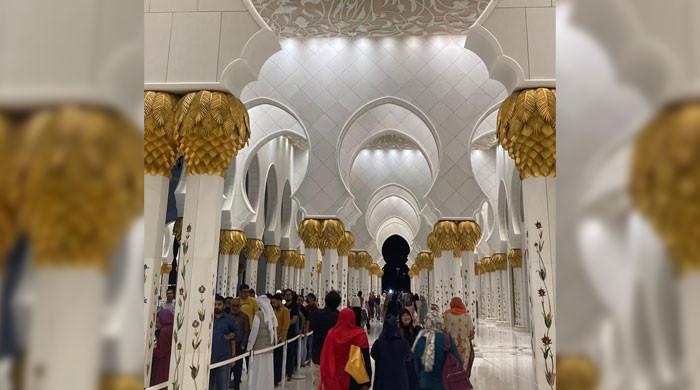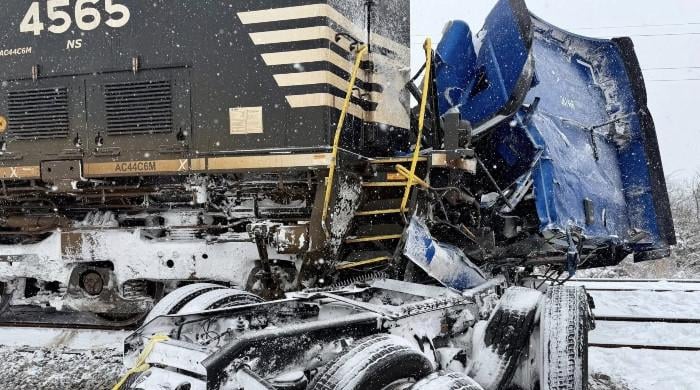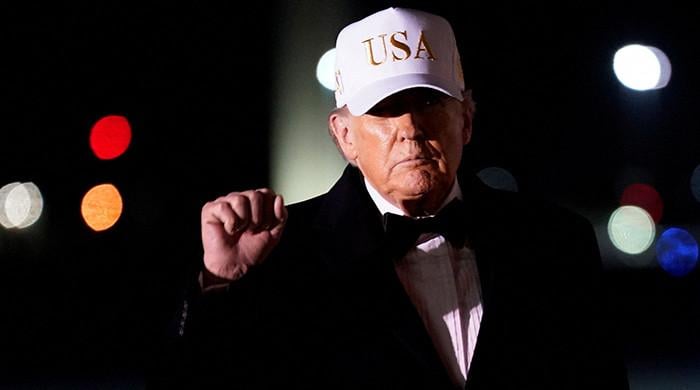Chaos in New Delhi as protesting farmers hoist their flag on Red Fort
Protest organiser said the groups swerving from set routes do not represent the majority of farmers.
January 26, 2021
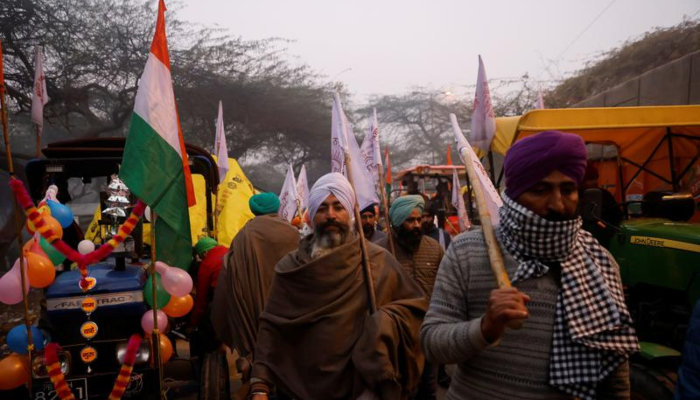
- Tens of thousands of farmers drove a convoy of tractors festooned with brightly-coloured flags through the outskirts of India’s capital.
- Protest organiser said the groups swerving from set routes do not represent the majority of farmers.
- Authorities used trucks to barricade the main route to the sit tear gas, and a water cannon stood guard.
NEW DELHI: The government of Prime Minister Narendra Modi failed to stop protesting farmers despite police crackdown who entered the historic Red Fort complex in the capital and hoisted their flags.
It was earlier reported that the Khalistan flag was hoisted atop the Red Fort. However, upon investigation, it was found to be the 'Nishan Sahib', which bears a close visual similarity to the Khalistan flag but has a very different symbolic meaning
Indian actor and activist, Deep Sidhu, who has been protesting for farmers' rights, posted a video on Facebook, clarifying that only the Nishan Sahib was hoisted on the fort.
"We have only hoisted the Nishan Sahib flag on the Red Fort while exercising our democratic right to protest.”
He said that in such protests, people become angry and that no one person can be blamed for committing an act of furty. He said that flag was hoisted as a sign of “unity in diversity”.
Growers, angered by laws they say help large, private buyers at the expense of producers, have camped outside New Delhi for almost two months, posing one of the biggest challenges to Prime Minister Narendra Modi since he came to power in 2014.
There were no confirmed casualties but Tuesday's disorderly scenes and lingering swirls of gas on the outskirts offered a sharp contrast with televised images of the serried precision of marchers in the city centre's annual military parade.
Reuters television images showed thousands of farmers converging on the Red Fort, a historic spot from whose ramparts Modi delivers an annual speech, and milling about its walls.
"Modi will hear us now, he will have to hear us now," said Sukhdev Singh, 55, a farmer from the northern state of Punjab, who was among hundreds of protesters, some on horseback, who broke away from the main route of a tractor protest.
Read more: Farmers reject Indian govt's offer to amend laws, protests to escalate
From the city's north they went to its centre, home to government buildings. They commandeered cranes and used ropes to tear down roadblocks, forcing constables in riot gear to give way, Reuters witnesses said.
A second group rode tractors to reach a key traffic junction in the city centre, also breaching barricades after similar clashes with police. Domestic television channels showed images of several bloodied protesters.
Reuters could not immediately reach police officials for comment.
Protest organiser Samyukt Kisan Morcha said the groups swerving from set routes did not represent the majority of farmers.
"None of the leaders disappeared," the grouping of farm unions said in a statement. "They are following the set routes."
Read more: Explainer: Why are the farmers protesting in India?
Farmer pressure
Earlier, tens of thousands of bearded and turbanned farmers, many bundled against the winter cold, drove a convoy of tractors festooned with the Indian tricolour and union flags through the city's fringes.
Agriculture employs about half of India's population of 1.3 billion, and unrest among an estimated 150 million landowning farmers worries the government.
Nine rounds of talks with farmers' unions have failed to end the protests, as farm leaders rejected the government's offer to delay the laws for 18 months, making a push for repeal instead.
"The farm organisations have a very strong hold," said Ambar Kumar Ghosh, an analyst at New Delhi think tank the Observer Research Foundation.
"They have the resources to mobilise support, and to continue the protest for a long time. They have also been very successful in keeping the protest really focused."
India celebrates Republic Day to mark the adoption of its constitution in 1950, showing off its military hardware.
"They could have chosen any other day instead of January 26, but they have announced now," Agriculture Minister Narendra Singh Tomar told media on Monday.
"Conducting the rally peacefully without any accident would be the concern for farmers as well as police."




